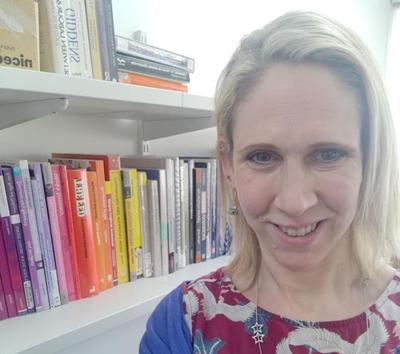New research shines light on future of work and working from home

Seven in ten (73%) workers would prefer to work from home some of the time according to a new report.
Working Under COVID-19 Lockdown: Transitions and Tensions looks at how organisations and workforces adapted and learned from working from home under the initial lockdown as part of a longitudinal eighteen-month study.
The cross-institutional project, Work After Lockdown is led by Dr Jane Parry, Director of the Centre for Research on Work and Organisations at Southampton Business School, University of Southampton in partnership with Dr Zoe Young of work design specialists, Half the Sky and Professor Stephen Bevan Institute for Employment Studies (IES). The project is funded by the Economic & Social Research Council (ESRC) as part of the UK Research & Innovation’s rapid response to COVID-19.
The project focuses on two sectors - those who work in local government and the legal profession. Workers from both sectors have shown they are highly adaptable in these unusual times as the report finds that:
- Nine out of ten (88.5%) employees felt that they had got more work done or as much done as in the office;
- Six out of ten (64%) workers rated the ability to work flexibly as the best feature of working from home;
- Eight out of ten workers (82%) miss the informal contact with their colleagues that the pressure of working from home has squeezed - it’s this ‘social deficit’ that workers feel is the worst aspect of working from home;
- Also of concern is that maintaining this high productivity during the pandemic takes its toll, with responses on mental health ranking at 47 out of 100 which is low as measured by the WHO5 global standard.
The report also makes five recommendations for employers as they consider how to organise work that meets these changing needs in a post-pandemic world:
- Focus on ways to support employee well-being and make practical adjustments to workloads and working practices, to ease intensity and promote better work-life balance;
- Re-engage with flexible working for the existing workforce and review the implications for future recruitment policy and practice;
- Define what a hybrid working pattern looks like for each job role and develop approaches to managing hybrid working in practice;
- Develop standards for good line management with an emphasis on the social and interpersonal skills needed to support, motivate and engage people working under changing circumstances;
- Provide suitable training to strengthen management skills that a future of hybrid and flexible working demands.
Commenting on the research, principal investigator Dr Parry, said: “When we started this research we did not know that lockdown would be a feature of our lives a year on. Our research is highly relevant as we can follow our case study organisations as they continue to adapt and learn from this living experiment in new ways of working.”
Dr Zoe Young, Half the Sky said: “jobs that were once considered office-only can now be performed successfully at home. Lockdown has given the opportunity to rethink what a job entails and where and how it needs to be done.”
Professor Stephen Bevan, IES said: “employers need to focus on wellbeing so that the high level of performance sustained through lockdown is not at the expense of the longer-term health of employees or their organisations.”
Work After Lockdown is a cross-institutional project led by Dr Parry and collaborators Professr Yehuda Baruch, Dr Michalis Veliziotis and Dr Mina Beigi at University of Southampton, working with Dr Zoe Young of work design specialists, Half the Sky, and Professor Stephen Bevan at the Institute for Employment Studies.
